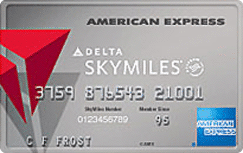
Friday, April 30, 2010
Beanstalks Aren't the Only Things That Grow, Jack...

Monday, April 26, 2010
Bigger Doesn't Always Know Better...

I have spent so much time talking to people and their companies, from large to small, that I really don't get shocked anymore. We often deal with significantly larger groups and I have to warn junior agents that just because they are bigger, doesn't mean they know better.
The Painful Truth About Signing Up...

...Reprinted from 2007 by popular demand...
OK, so maybe you signed up for a merchant account a year ago and your business is already taking credit cards; or you are just now looking into it. Either way, learn for the next sign up or the first one. Sit down, and oh... you may want a drink.
First and foremost, one of the worst things about the industry is the salesmen. Chuck, Alicia, whomever, I'm sorry but it's true. 99% of merchant account sales people give the rest a bad name. Why? Because they make money by up-charging you the client. This is not always the case, just in 99.99999999% of all cases I have everseen. After all, there has to be an incentive plan for keeping these guys and gals hitting the bricks.
Well, here's an incentive: a sign-up fee. A sign-up fee? Are you kidding me? You want me, to pay you, in order for you to make money off me? I am supposed to pay you for that?!
...Anyhoo, this is a fee that goes one place and one place only: the saleman's pocket. Oh yes, make sure you know this. The only reason that it is on the contract is so that they can scratch through it with a pen and say, "but because it's you, we are going to waive that fee". How sweet. However, if they think they have a nice, fat fishy on the line they will charge it and simply put it in their pocket. Yay! Sushi's on me tonight!
This I cannot be clear enough about. If you have someone who wants to charge you a fee to get set up when their company will be getting a percentage of your hard earned money for the rest of the contract, you need to introduce him and his plaid, reversible, polyester jacket to the door. Would you pay a fee to a car company in order to be able to pay them for a car? "OK, let's see... that Ford costs $26,000, but I will need you to pay us a $100 fee in order for us to be able to give you the privilege of buying from us." Goodbye and get out.
I have seen so many established businesses doing high sales that have paid this fee that I cannot imagine the level of salesperson that would actually charge it . Seriously, their bio would have to start, "Leaving a trail of slime wherever he goes..."
Bottom line: your business is worth something and there are fifty other companies out there willing to take very good care of you simply in order to beat out the other guy. My daddy always said, "Vote with your feet." In other words, if you don't like it, there are a lot of other choices out there.
Cut Your Phone Bill With Wireless

Now, this is sadly not a solution that works for everyone, but for those it does it's gangbusters.
Paying for Someone Else's Coupon

You clip a manufacturer's coupon for a $1 off a gallon bleach. You go to the store. You select the bleach which is $1.79 and take it with your coupon to the cashier who then subtracts the $1 and the new bill before tax is $0.79.
Double-Tagged for Fees

I apologize for my industry. A lot.
Friday, April 23, 2010
No Contract Term, No Cancellation Fee...

Terminals Are Generally Free

Free.
- A lease is for a set period of time. Even if your business fails you have to keep paying a lease until your four years run out.
- If you have a lease you pay for your terminal no matter how much you do a month. Seriously, if you have a lease of $48 a month and you process $5,000,000 a day; you will have to pay all the fees on the $5m + the $48 lease.
- Most leases are non-cancelable. this is so that if you find a better merchant rate, your still stuck paying your old company for your lease.
- Leases often have provisions stating that non-performance is not an option for cancellation.
- Leases are often significantly higher per month than rentals, flat out purchases, free placements, or anything else.



